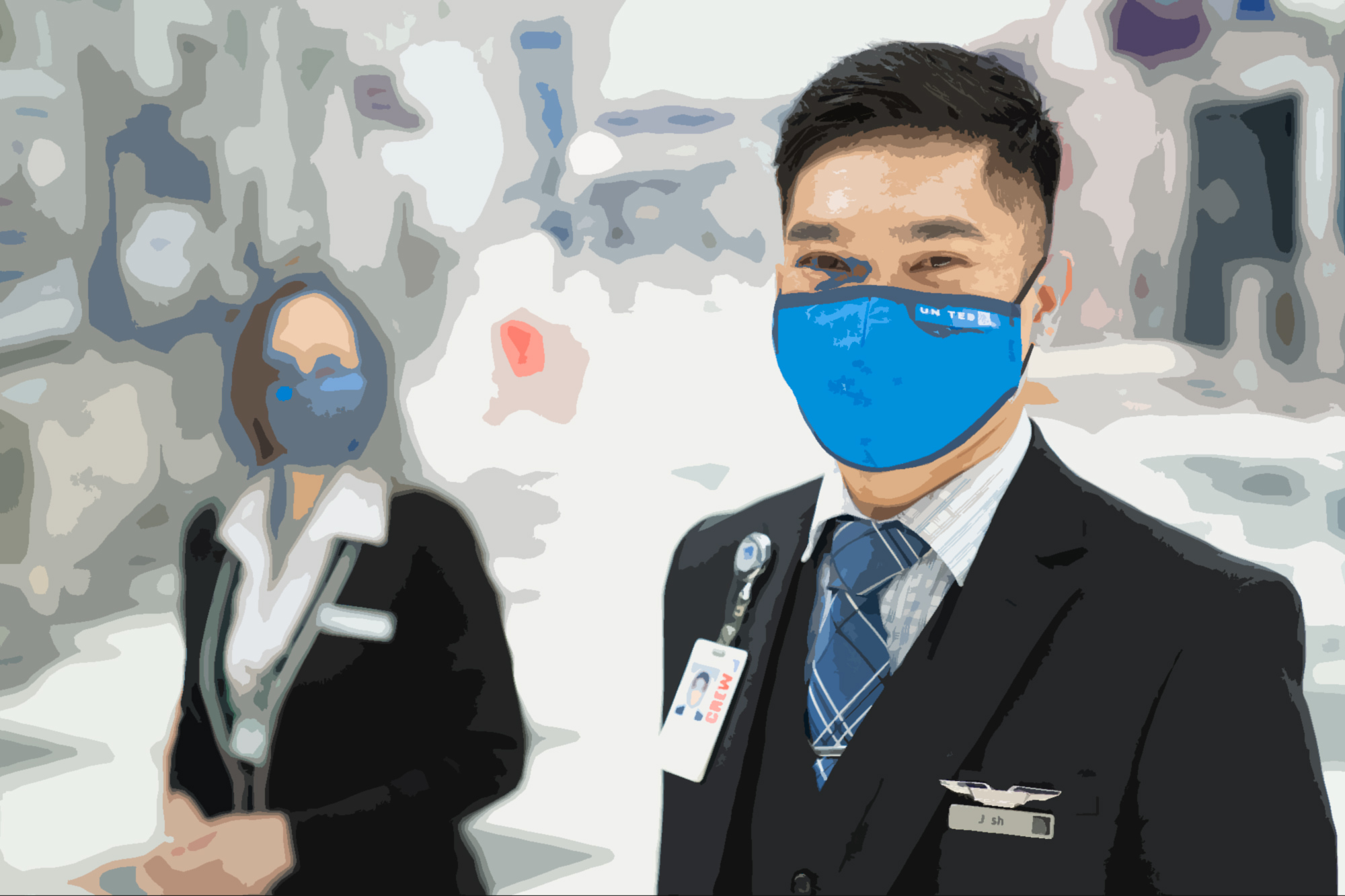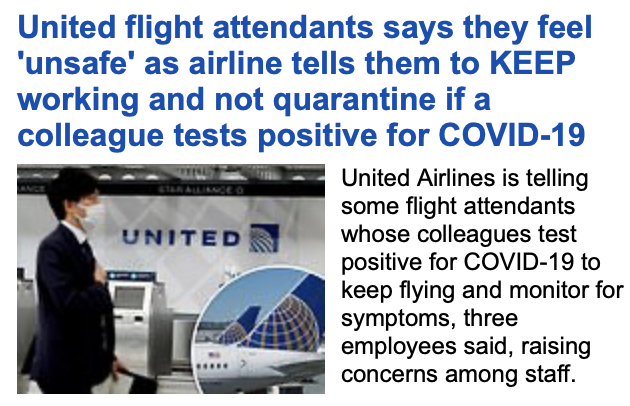
A group of flight attendants at United Airlines has insinuated that United forces them to work even when they have been exposed to a colleague with COVID-19. But the issue is more complex and requires a closer look.
What Happens When A Flight Attendant Is Exposed To COVID-19?
A story in Reuters notes that some flight attendants blame United Airlines for insufficient quarantine and contact tracing protocols. They further claim that they are forced to continue to work if a colleague they fly with comes down with COVID-19. But that paints an incomplete picture.
United Airlines Quarantine Protocol
When a crew member tests positive for COVID-19, they must quarantine wherever they are until they can be cleared by a medical professional to return home. Per Centers for Disease Control (CDC) guidance, United then conducts contact tracing. If a flight attendant or pilot is determined to have been in close contact with the infected employee, they are placed in quarantine as well. If not, they must “self-monitor” for 14 days.
When Does A “Close Contract” Occur?
The CDC defines close contact as occurring when:
- You were within 6 feet of someone who has COVID-19 for a total of 15 minutes or more (over a 24 hour period starting from two days before the onset of illness)
- You had direct physical contact with the person (hugged or kissed them)
- You shared eating or drinking utensils
- They sneezed, coughed, or somehow got respiratory droplets on you
Consequently, just because two flight attendants were on the same flight and one comes down with COVID-19 does not mean that others will as well or are even at high risk of contracting it. In a time in which crew seats have been spaced out, flight attendants must wear masks, and high-powered filters clean and recirculate air, aircraft environments have become among the safest shared spaces to avoid the spread of virus.
While American Airlines has stricter protocols, United’s policy is hardly unique. Alaska, Delta, and Hawaiian all embrace the same policy, outlined by both the CDC and the Federal Aviation Administration SAFO (Safety Alert for Operators).
United further told me:
“The health and safety of our employees and customers is our highest priority, which is why we have policies and procedures in place as part of a multi-layered approach to create a safer travel environment. We adhere to the FAA’s SAFO (Safety Alert for Operators) and CDC guidance pertaining to how we prevent the spread of COVID-19 and manage active cases for crewmembers.”
Delta also confirmed a similar policy:
“As we have throughout this pandemic, we follow guidelines from the CDC and other health authorities to ensure that all Delta people quarantine if they have prolonged, close contact with a COVID-19 positive individual.”
But unions see this as a wedge issue. The Association of Flight Attendants, which is also trying to organize flight attendants at Delta, stated:
“We’ve received concerns about quarantine protocols from flight attendants across the industry from carriers we represent and where we’re organizing.”
The underlying message is simple: profits over health, money over people. But isn’t that always the charge from the AFA?
CONCLUSION
The headlines, like the Daily Mail below, are alarming. But frankly, I don’t see this as nearly the scandal that some flight attendants have made it out to be. Delta and United are following CDC and FAA protocols.
Anyone who was exposed for an extended period must quarantine whether they are sick or not. To do more seems to me to be disproportionate with the risk, especially with all the additional precautions being undertaken onboard to ensure safety during this time.





I don’t see how they can criticize the contact tracing protocols. It took them only five weeks to notify me that I’d worked closely with a sick flight attendant. No problem at all.
As for the “close contact”, how is United determining this? If I sit on a jumpseat next to someone, I consider that close contact. If I work out of the same galley with someone, I consider that close contact, too. If I sit next to someone in the hotel van for a 30 minute drive, I consider that close contact. Those may all be different people. Is UAL considering only jumpseat position or only service position, but not both? I think that is the case. Certainly they’re not considering the van ride to the hotel.
And I know this is very wrong, but if I come down with symptoms of covid at work, I will certainly be hiding that fact until I’m back at home…which is what the coworker who exposed me did and I don’t know anyone who wouldn’t do the same.
Thanks for your comment. To be clear, if you tell United that you were within six feet of an exposed FA for over 15 minutes, they won’t take your word for it?